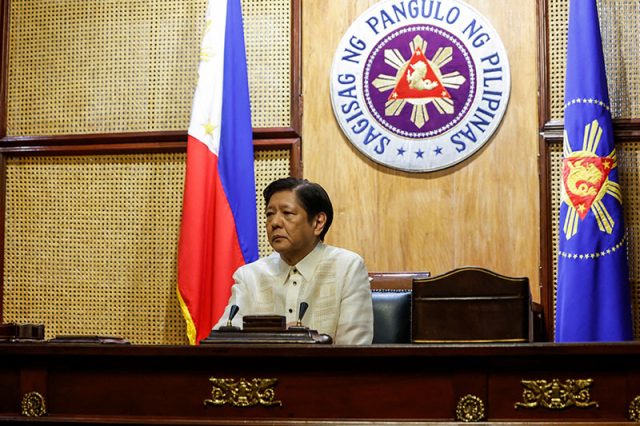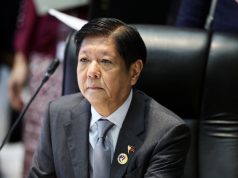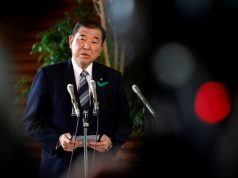
MANILA — The upcoming trilateral summit between the United States, Philippines and Japan will include an agreement to maintain security and freedom of navigation in the South China Sea, President Ferdinand Marcos Jr. said on Wednesday.
Marcos is set to leave for Washington on Wednesday afternoon for talks with U.S. President Joe Biden and Japanese Prime Minister Fumio Kishida.
“(The summit) will contain more details in the sense of how cooperation will be implemented,” Marcos told reporters.
Marcos is also set to hold a bilateral meeting with Biden ahead of the meeting among the three leaders.
ALSO READ: Expect more joint South China Sea patrols, US says ahead of summits with allies
The Philippines under Marcos has deepened military ties with both the United States and Japan as maritime run-ins with China in the South China Sea have escalated.
Marcos has allowed to nearly double Philippine bases American soldiers can access, and talks are underway with Japan for a reciprocal access agreement that will allow the presence of Japanese forces on Philippine soil.
At the same time, Marcos has also denied the existence of a so-called “gentleman’s agreement” reportedly struck under predecessor Rodrigo Duterte with Beijing to keep the status quo in Second Thomas Shoal, a disputed maritime feature in the South China Sea.
A spokesperson for former Duterte confirmed last month that such an agreement was made, but Marcos said there are no records of the deal.
“I am horrified by the idea that we have compromised through a secret agreement the territory, the sovereignty and the sovereign rights of the Philippines,” Marcos said.
China claims almost the entire South China Sea, overlapping with territorial claims of the Philippines, Vietnam, Malaysia and Brunei.
In 2016, the Permanent Court of Arbitration in the Hague said China’s claims had no legal basis, a decision Beijing has rejected.”
— Reporting by Mikhail Flores; Editing by Kanupriya Kapoor









